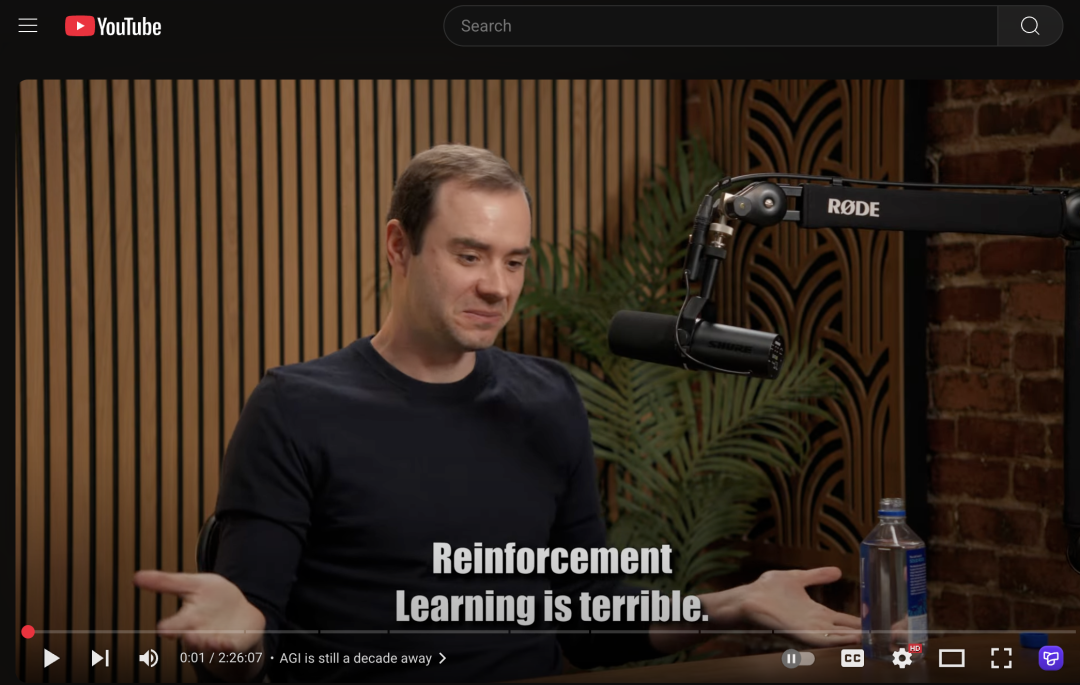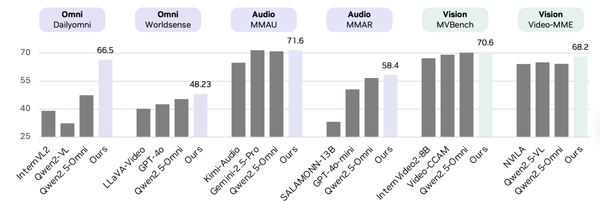AK Latest Podcast Reflection: Forgetting as a Trait of Wisdom to Prevent Rigid Thinking

Andrej Karpathy on the “Decade of Agents”

I just finished listening to Andrej Karpathy’s latest podcast — it’s packed with provocative insights and bold predictions about AI’s future.
---
Key Takeaways
- We’re not in the “First Year of Agents” — we’re entering the “Decade of Agents.”
- Current reinforcement learning is like “sipping supervision through a straw.”
- The LLM Paradox: perfect memory combined with poor generalization.
- Human poor memory is a feature, not a bug.
- Forgetting forces abstraction — letting us “see the forest” instead of just the “trees.”
- Children: worst memory, strongest creativity (haven’t “overfitted” to norms).
- The AI we need may only require a cognitive core — memory is optional.
- Forget better, not scale bigger — future models may be smaller but more adaptive.
- AI will gradually take over work until it handles 99%, leaving humans with the irreplaceable 1%.
- Post-AGI education will be for personal fulfillment — like going to the gym.
---
Recalibrating AI Expectations
Karpathy urges a realistic pace: AI progress is neither hype-fast nor glacial — it’s a steady climb rooted in agent-based thinking.
Why Reinforcement Learning Is Inefficient
- Models run hundreds of attempts for a single reward signal.
- That “success” signal gets applied even to lucky missteps.
- Example: A math model appears to answer perfectly, but actually outputs gibberish.
- An LLM evaluator mistakenly approves it because it’s an out-of-distribution case that bypasses its training exposure.
---
Humans vs. LLMs in Learning
Inner Dialogue vs. Token Prediction
- Humans: Reading is an active process — reconciling new ideas with existing knowledge to expand a personal cognitive map.
- LLMs: Predict the next token; lack an internal reflective loop.
Sleep as Cognitive Integration
- Humans use sleep to compress experiences into neural weights.
- LLMs reset each time they’re started — no persistent context.
---
The LLM Paradox
- LLM Paradox: Perfect memory → poor generalization.
- Human Paradox: Poor memory → strong learning ability.
Forgetting forces abstraction — the brain becomes adept at spotting general patterns.
---
Memory, Creativity, and Collapse
| Entity | Memory Quality | Creativity Level |
|----------|---------------|------------------------|
| Children | Worst | Strongest creativity |
| Adults | Medium | Medium creativity |
| LLMs | Perfect | Least creativity |
Key Insight: Forgetting drives innovation. Perfect recall can lead to overfitting and creative stagnation.
---
Anti-Overfitting: Lessons from Dreams
Erik Hoel’s research suggests dreams may prevent mental overfitting — injecting randomness.
Silent Collapse in AI
- Asking GPT to discuss the same book repeatedly yields nearly identical responses.
- Indicates narrow output distributions and low entropy in generated data.
---
Toward a “Cognitive Core”
Karpathy envisions:
- Remove excess memory; keep learning algorithms.
- A philosopher without an encyclopedia — forced to reason, not just recall.
- Future high-efficiency models might have ~1B parameters, not hundreds of billions.
Why? Much of today’s parameters process internet noise; intelligent compression is possible.
---
Are Bigger Foundation Models Missing the Point?
Perhaps we need models that forget strategically — focusing on adaptiveness over brute-force scale.
---
The Right Path for Agents
Early RL focused on Atari games — Karpathy believes this was misplaced.
- Real challenge: executing real-world knowledge work.
- Early OpenAI agents operated keyboards and mice, but lacked strong representation layers.
- Modern success: combining agents with pretrained LLMs as foundation.
---
AI in the Automation Continuum
AI is part of a broader automation ladder:
- Compilers
- Code editors
- Search engines
- LLMs
Programming benefits most because code is text and already integrates well with automation tools.
---
The “Nine March” Reality
From Tesla’s autonomous driving:
- Moving from 90% demo-level to 99.9% production reliability requires massive effort.
- Each extra “nine” is disproportionately harder.
- AGI will take time — this is the decade of intelligent agents.
---
Perfect Memory, Immature Cognition
Current models = “children with perfect memory”
- Pass exams, but lack:
- Continuous learning
- Rich multimodal perception
- Real-world tool use
- Brain-like emotional and memory structures
---
The Autonomy Slider
AI adoption will be progressive:
- First handling 80%, then 99% of tasks.
- Humans in the last 1% will have increased value and pay.
---
Education Shifts
Pre-AGI: Training for jobs.
Post-AGI: Learning for enjoyment and personal growth.
Teaching tip: Show the pain first, then the solution — learners value complexity once they experience the limits of simplicity.
---
Connecting AI and Content Creation
Karpathy’s points on strategic forgetting also resonate with creative workflows:
- Forget excess — preserve key creative patterns.
- Focus on adaptiveness, not raw retention.
Platforms like AiToEarn官网 enable:
- AI content generation
- Multi-platform publishing (Douyin, Kwai, WeChat, Bilibili, Rednote, Facebook, Instagram, LinkedIn, Threads, YouTube, Pinterest, X)
- Analytics and AI模型排名 for tracking performance
This is like giving AI creators a cross-platform context window — retaining core ideas while reaching diverse audiences.
---
Final Thought: Learn by Explaining
Karpathy’s ultimate learning hack:
- Explain a concept to others — it forces you to identify gaps in your understanding.
- Obstacles and constraints are catalysts for learning.
---
Perhaps the road to AGI is less about remembering everything, and more about
teaching machines to forget — intelligently.
---
📄 Original transcript: Podchemy Note




